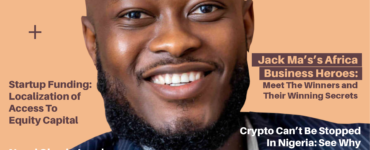I’m regularly asked “What should I read if I want to start my own business?” or “I’m leaving the corporate world and I’m thinking about founding a startup — what should I do?”
Today I’m celebrating my two year anniversary of leaving the corporate world behind. At Plated.com we recently raised our $5mm Series A financing, and while we certainly aren’t at the end of our journey, it feels like we’ve made it through our darkest days (hopefully).
Here I’ve listed the best resources to turn to when starting your own business or entering the startup world – the blogs, vendors, Twitter feeds, books, and people that I have found essential while pushing the boulder up the mountain over the last two years.
1. LegalZoom
So you want to start the next AirBnB or Uber? Before doing anything else, go incorporate on LegalZoom.com – it costs $99 (plus state filing fees) and will allow you to talk about your BUSINESS, and not just your IDEA. Taking the plunge and moving from inspiration to perspiration is the most meaningful thing you can do when you are just getting started.
2. GoDaddy.com
Next, go find a domain, even if it sucks, and BUY it. When my cofounder Josh and I were just getting started on my couch on West 14th Street in Manhattan, we needed to incorporate, and we needed a website. Today, Plated.com is a solid brand (getting better every day), and we have spent way too much money on legal fees for both more robust incorporation and a better domain name. But in those first days, we just needed something. So we incorporated DineInFresh Inc as a C Corp in Delaware, and we bought www.DineInFresh.com on GoDaddy.com for $14.99. We had an official business. And we had an official website. Now we had the simple task of building and selling stuff…
3. Delivering Happiness
So you’ve got a legit business and website now. Awesome! What’s next? First, take a day or two and read Tony Hsieh’s “Delivering Happiness.” You might say, “Nah, dude, I just want to go build something awesome that people are going to love!” Right, if only it were as easy as that. Go read Tony’s book. He sold his first business for 200 gagillion dollars when he was in his mid-20’s less than two years after launch. After a short break, he then spent the next decade launching and building Zappos.com. Before you embark on your own entrepreneurial adventure, take some of Tony’s medicine. Tony ultimately sold Zappos to Amazon for over a billion dollars, but the roller coaster he went through along the way is a realistic and cautionary tale for any person venturing into the void of building your own business from scratch. It will help prepare you mentally for the battles, losses and victories that are to come.
4. Lean Startup
You’re all amped up on Tony Juice, and now you’re ready to get after it. Good. Go pickup a copy of Eric Ries’ “The Lean Startup.” This is a high level book on how to take an iterative approach to building a business. Take an idea, develop a hypothesis, and work to validate or invalidate it as quickly and cost effectively as possible. Don’t spend the next month sitting on PowerPoint building the perfect investor deck. Don’t spend the next month building your financial model. Don’t even spend the next month on your website. Instead, as Ries says, get out of the building and go find and talk to potential users of your product. Josh and I spent our first two weeks at the Union Square farmers market talking to literally hundreds of different people. That in and of itself is hard. 75% of people are too busy to stop and talk. Of the remaining 25% who will actually spend five minutes talking to you, only one quarter to half of those folks will provide meaningful feedback. This is emotionally and physically draining work, but it is essential when you are just getting started.
5. Four Steps to the Epiphany
If “The Lean Startup” is your Hemingway, then Steve Blank’s “Four Steps to the Epiphany” is your bible. Does that analogy even make sense? Probably not. But the point is that once you get an idea for how important it is to validate your idea quickly, you have to actually go do it. Blank lays out the A to Z of how to go from idea to business. My favorite quote from the book: “In a startup, it doesn’t matter if you’re 100 percent right 100 percent of the time. What matters is having forward momentum and a tight fact-based data/metrics feedback loop to help you quickly recognize and reverse any incorrect decisions. That’s why startups are agile. By the time a big company gets the committee to organize the subcommittee to pick a meeting date, your startup could have made 20 decisions, reversed five of them and implemented the fifteen that worked.” The only advantage you have as a startup is your ability to move fast and adapt to customer demands. Your startup will live and die based on your ability to make aggressive decisions and execute on them quickly. Blank lays out a fantastic framework for baking this into your DNA.
6. Follow these people on Twitter
Twitter can be a huge waste of time. It can also be an amazing resource. If you’re not on Twitter already, then you probably shouldn’t be starting a startup. Either way, you should go follow these 10 startup and tech thought leaders: Andreessen Horowitz @A16Z, Gary Vaynerchuk @Garyvee, John Frankel @John_Frankel, Eric Hippeau @EricHippeau, Aaron Levie @Levie, Dick Costolo @DickC, Chris Dixon @CDixon, Om Malik @om, Jack Dorsey @Jack, Brooke Hammerling @Brooke
7. Venture Hacks
It is hard to separate the signal from the noise when it comes to anything related to startups. Today, you only need an internet connection and some free time in order to start a startup. This is great because it means being your own boss and building an impact-driven organization from scratch has never been easier. But the downside is the mass proliferation of startup related nonsense that seems to crowd every corner of the interwebs. Who can you really trust when it comes to making the right decisions around legal structure, convertible debt, founder dating, hiring programmers, and the zillion other things that will be on your plate as you start up? VentureHacks.com should be the first place you go when you have startup-related questions, whether they be “How much equity should I give our first engineer?” or “Should I incorporate as an LLC or C Corp?”
8. Unemployment Benefits
This might sound a bit heretical, and the Tea Party sure ain’t going to like it, but the US (and NY State in particular) has a social safety net for a reason. You’re not going to live luxuriously off of unemployment benefits, but they’re enough to keep you from starving for 4-6 months until you have validated or invalidated your idea. When I left the corporate world behind two years ago today, it took 8 months until Josh and I started taking a salary. I had a West Village apartment, business school loans, and a gym membership to pay. My wife and I transferred onto my Tricare health insurance available through the Marine Corps Reserves, and we tightened the belt. Since then, New York State has funded Plated with nearly a million dollars from the Innovate NY Fund (secured with multiples on that from our lead venture capital fund, ff Venture Capital). So what’s the take away? If you overthink your first step, twenty years from now you very well might find yourself chained to the same desk, wondering what it shoulda coulda woulda been like if you had taken the entrepreneurial plunge. I wouldn’t have been able to do what I’m doing today without the government safety net.
What do you think? Are there any essential resources that I missed that you’d recommend for folks diving into the startup realm?
Source: https://www.forbes.com/sites/nicktaranto/2014/01/27/8-resources-every-new-startup-person-should-use/#2c760cd36ece







Add comment